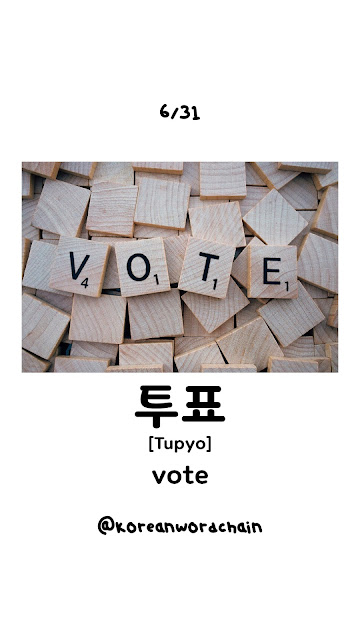Korean Vocabularies about VOTE & ELECTION

투표 vote, voting -에게 투표하다 to vote for somebody 투표권 the right to vote 국민투표 referendum 투표는 5월1일에 실시된다. Voting will take place in May 1. 나는 프로듀스101에서 강다니엘에게 투표했다. I voted for Kang Daniel on Produce101. 선거 election 대통령 선거 presidential election 총선 general election 지방선거 regional election 부정선거 rigged election They polled 39% of the vote in the last election. 그들은 지난 선거에서 투표수의 39%를 득표했다. The presidential contest is nip and tuck. 이번 대통령 선거 는 막상막하이다. 당선 being elected 당선되다 to be elected -에(으로) 당선되다 to be elected to (a post) A month after that , Obama won the presidency. 한 달 후, 오바마는 대통령에 당선되었다. 출마 candidacy 출마하다 to run for 선거에 출마하다 to run for election He ran for the mayor of Seoul. 그는 서울 시장 선거에 출마했다. 유권자 voter ...





